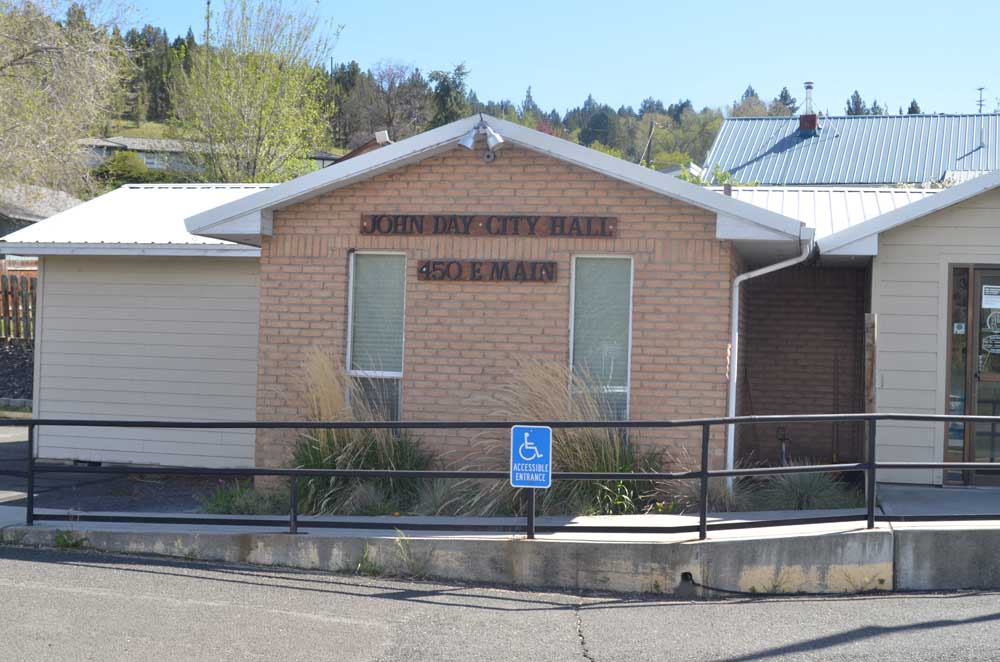John Day Budget Committee approves $6.9 million budget
Published 8:00 am Saturday, May 31, 2025

- The John Day Budget Committee approved a $6.9 million budget at its meeting May 27, 2025. The budget now heads to city council for adoption. (Justin Davis/Blue Mountain Eagle, File)
Big grants, loans absent from 2025-26 fiscal year drops total to about half of last’s year figure
JOHN DAY — The John Day Budget Committee at its meeting May 26 approved a $6.9 million budget for fiscal year 2025-26. The budget now heads to the city council for adoption.
The committee also approved a permanent tax rate of $2.9915 per $1,000 of assessed home value.
The city’s budget is a little more than $7.7 million less than last year’s adopted budget of $14.69 million. Despite the sharp drop, the city did budget for a 3.5% cost of living increase for its employees, Public Employees Retirement System increases, a 10% utility cost increase and a 20% increase in liability insurance costs.
Trending
The city’s sewer fund makes up the bulk of the $7.7 million difference between this year and last year’s budget. This fiscal year, the budget committee approved an $891,750 budget for the sewer fund compared to last year’s $7,883,944.
Individual city funds
A Community Development Block Grant and an Oregon Water Resources Grant, each totaling $2.7 million, boosted the sewer fund for 2024-25. Neither grant is present in the 2025-26 city budget.
Also absent is a $1.5 million loan from Business Oregon in addition to more than $332,000 in proceeds from water and more than $149,000 in residual equity from the joint sewer fund.
In total, the sewer fund’s approved budget is more than $6.9 million less than last year’s adopted budget figure.
The city’s general fund also saw a decline from about $3.04 million last fiscal year to a little more than $1.8 million this fiscal year due to the absence of $1.26 million in grant funding.
The city’s urban renewal agency began with a $911,000 shortfall, but $105,000 in property tax revenue coupled with a $925,000 loan from the city of John Day has the fund balanced for the 2025-26 fiscal year.
Trending
There were modest increases to some city funds, however.
The John Day Fire Department will see a more than $50,000 increase in its budget in comparison to last fiscal year. The community development fund more than doubled from $133,629 in 2024-25 to $316,158 this fiscal year. John Day City Manager Melissa Bethel said the rise in the community development fund was due to increased legal costs and the employment of the contract planner.
Bethel said revenue from the transient room tax is put into the community development fund and will continue to increase but will show as expenditures. Bethel said the TRT funds are acting as a pot of money and aren’t being spent at this time.
The city has seven full-time equivalent employees but has budgeted 11 for the upcoming year.
John Day will have $126,563 in operating contingency for fiscal year 2025-26. Last year, the city had no funds as a contingency.
City debt
The city has $2.35 million in debt for 2025-25.
The fire hall has a balance of $253,000 with a 3.07% interest rate. That loan will be satisfied in the year 2030.
The city’s greenhouses are carrying $284,713 in loan debt with a 3.43% interest rate. That loan term will end in 2043.
The water fund has two outstanding debts. The first is a consolidation loan obtained from Washington Federal in 2018 for sewer system improvements, fire hall improvements and refinancing of other city debts. That loan has a balance of $682,952 with the water fund responsible for 74% of that debt and the sewer fund responsible for 26% of the debt. The loan has a 3.34% interest rate and will be satisfied on Dec. 1, 2027.
The second is a loan from the Business Oregon Development Department in 2021 for the purchase and clean-up of the brownfield property that Iron Triangle owned. The balance of that loan is $437,591 with the final payment due on Dec. 1, 2040.
The city has $693,475 in new debt in comparison to the 2024-25 fiscal year.
The first source of that debt is a $393,475 loan to purchase property in the Innovation Gateway. The second source is $300,000 in debt associated with the construction of the city’s wastewater treatment plant.
While the second half of a $1.8 million URA loan — $925,000 — is in the 2025-26 budget, Bethel said the city does not want to use the money and accrue additional debt despite it being in the budget.
The city has until December to decide if it will use the funds, otherwise the loan will expire. Bethel said the city is exploring a one-year extension on the expiration date of the loan.









